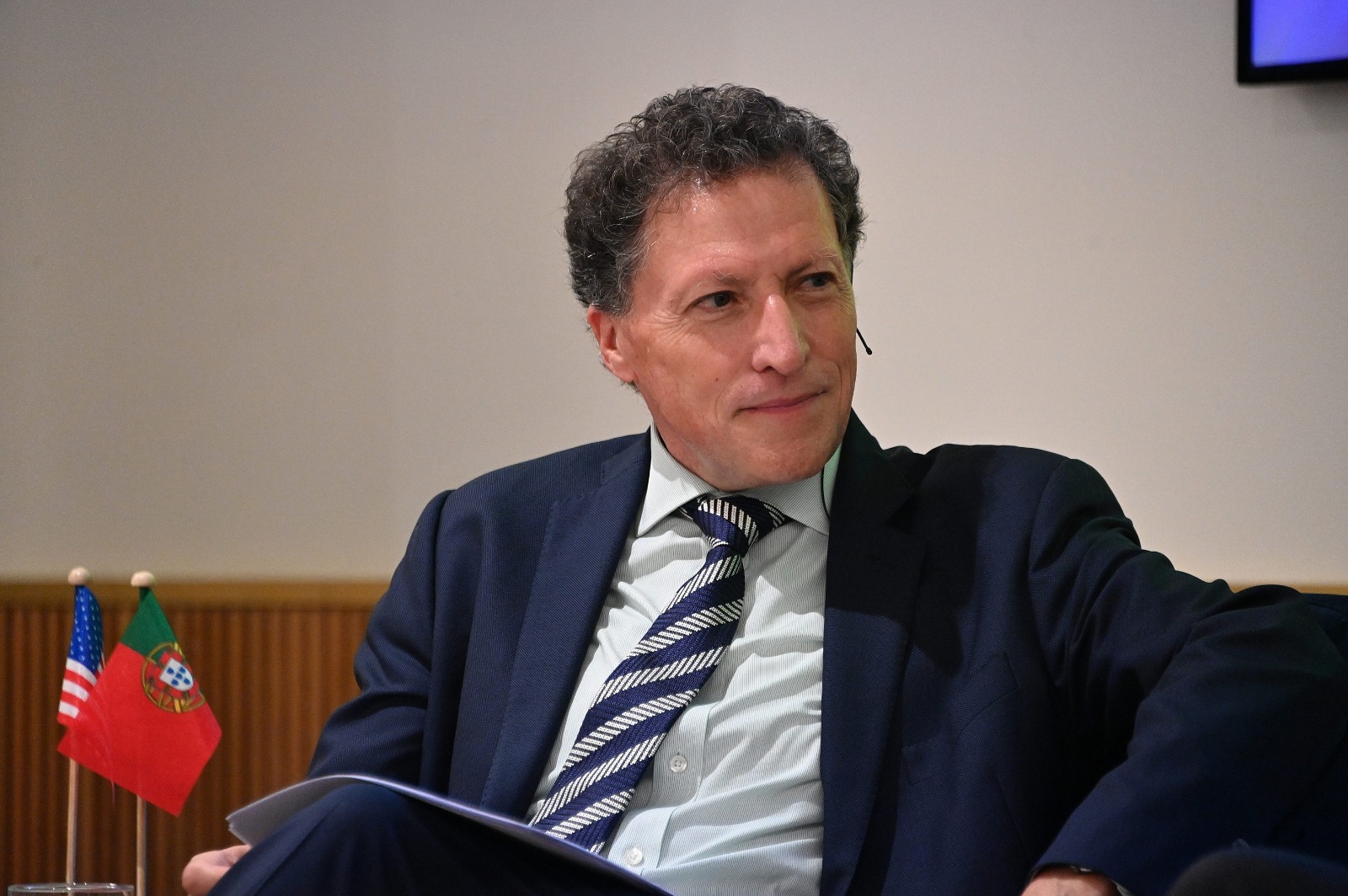Text: Chris Graeme Photos: Joaquim Morgado
Tourism provides around 15% of Portugal’s GDP and the United States is one of the Top 5 inbound markets to Portugal along with the French, Germans, Spanish, and British.
In July 2022, 183,000 Americans visited Portugal, and they made the US the number three inbound market for the country, behind only Spain and the UK.
This was a 36% increase on the same month in 2019 which had been a record-setting year in itself.
It was not just the increased number of Americans coming to Portugal; July was the best month for tourism in Portugal from all European tourist issuer markets ever.
Tourists from the US tend to be wealthy High-Net-Worth Individuals (HNWIs) and are well travelled. They want experiences and high-end service.
But this second aspect is often wanting for these seasoned travellers, with a lack of seamless quality service, without hiccups, from point of arrival to departure. Although levels of service in the hotel industry have improved (English is universally spoken and Portugal has good hotel schools), Portugal still has a long way to go, particularly on training at a non-managerial level and maintaining adequate staffing levels.
Arnie Weissmann, Editor-in-Chief of Travel Weekly, the industry’s award-winning source of news, research, analysis and opinion, and editorial director of Northstar Travel Media’s Travel Group, which includes Travel Weekly China and Travel Weekly Asia, has visited Portugal three times and written about it.
Weissmann, who also founded Weissmann Reports (now part of Travel 42), is also a popular speaker at industry conferences, is widely quoted in consumer media and is a regular contributor to the PBS television show “The Travel Detective.”
2022 – a transitional year
At an event organised by the American Club of Lisbon and hosted by the Luso-American Foundation for Development (FLAD) and held a their premises in Lisbon on Tuesday, Weissmann pointed out that almost every country increased visitation levels to Portugal this year and by double digits, with the only exception being Germany.
“I think this explosive growth Portugal has experienced in 2019 and 2022 will continue, but not necessarily at the current rate.”
Weissmann sees 2022 as a “transitional year” impacted by several factors that have combined to show a strong showing of Americans.
These factors are: pent up demand, strong US dollar versus the euro, the increase in direct flights, the relaxation of Covid rules, and the simplification of entry requirements, and Portugal’s perceived safety regarding the Ukraine War.
Pent up demand was the major factor, but Weissman warned the astonishing number of US visitors was unlikely to continue travelling if the current environment of higher than normal air fares, sky-high average daily hotel room rates, and costly car rental fees.
“These have risen due to a combination of factors, including high demand, and the cost of fuel and wages”.
American travellers this year have been willing to put up with long queues at airports, delayed flights, and lost luggage.
And once they do arrive, they frequently find (in Portugal) sub-standard service and staffing shortages.
These record-breaking numbers are occurring without the Chinese. When they return after three years of severe lockdowns, demand will be even stronger.
“The fact that travellers are willing to put up with all these problems just shows how powerful travelling has become in 2022. People see leisure travel as a right, to be exercised as soon as time and income allow”.
Increased airline competition and more routes between Lisbon and US cities should result in lower airfares if current demand to Portugal continues. It is now just as easy of not easier for Americans to fly from New York to the Azores than to Miami, Florida.
Weissman says that even if 2022 ends up being an exceptional year, investment in hotels and tourism is likely to pay off handsomely.
“Hospitality developers have taken notice of Portugal, and in the second quarter alone 123 new hotel construction projects were started, which will add 15,000 rooms with an estimated 80% occupancy. Thirty-four of these new-builds are in Lisbon. (4,000 beds). This translates into an additional 4 million overnight stays for next year.”
However, the Covid-19 pandemic hit Portugal’s tourism industry particularly hard in terms of sector jobs; in part because so many were laid off, and partly because hotel sector workers looked at the pros and cons and moved to other sectors because hotel sector jobs are not very rewarding in terms of salaries and work-leisure-family balance.
Current trends in US consumerism – How HNWIs are travelling in 2022
Sheree Mitchell, who is the founder and CEO of Destination Management Company (DMC) Immersa Global, which specialises in the design and delivery of events, activities and bespoke tourism for HNWIs. (And organising all the staffing and transportation using local knowledge, expertise and a strong network of professionals on the ground), has a better take on what affluent US tourists require when travelling in Portugal better than almost anyone.
“Recently we’re hearing about requests for information about sustainability initiatives, not just in terms of the suppliers, but also the hotels where clients are thinking of staying. This is becoming a top priority”.
Mitchell says that clients are now requesting holidays in Portugal as a single destination, whereas before it was always an add-on to a wider tour of Europe, often including France or Spain.
“We would have clients who would spend four or five days in Lisbon on their way back to the US from Paris or Barcelona”.
Mitchell says that clients are also requesting more experiences in the countryside, particularly the Alentejo and the Douro regions, both of whose regional tourism boards work well in terms of the marketing of their regions and support given to tourists regarding what to do, explore and see.
“We are seeing HNWIs requesting longer stays and are now curating our first programmes of 30 days + for families and groups of couples.
“We are also noticing that there are requests from ‘Covid Pods’ meaning US tourist groups electing to only spend time with each other to minimise the threat of contagion”, says Mitchell.
US travellers frequently ask about Portugal’s health care facilities, and the difference in experiences between paying a visit to a doctor in Portugal compared to the US. This also includes curiosity about Portugal’s national response during the pandemic, and how local people were taken care of without any fees or questions asked during that period.
Challenges and Opportunities
Consistency with suppliers, products and services was a challenge prior to Covid and continues to be a challenge now, says the founder of Immersa Global. “This inconsistency is very unfortunate because it is difficult to build on your foundation as a quality curator of bespoke holidays if you cannot rely on your suppliers”.
“The clients we have are very sensitive to a lack of consistency, especially if we have explained to them in detail what kind of experience they will have, and its not exactly what we had led them to expect”.
Mitchell says there is a lack of high-end services and products in the market, particularly in terms of transportation and reliable companies providing drivers. “This might be an opportunity for investment in the high-end transport sector”.
Hospitality staff shortages
Another issue is the lack of trained staff in the hotel and hospitality sector. It is a problem, she says, affecting “all of us”, not just high-end tourists, but consumers, both overseas and local, as a whole.
Mitchell also highlights that the tourism authority in the Algarve has been “very creative” by seeking solutions to the problems caused by staff shortages by hiring from other countries within the Portuguese speaking and wider world.
In 2022 the Portugal Hotel Association (AHP) successfully lobbied the Government to fast-track employment visas for non-EU nationals to help make up for the shortfall of an estimated 45,000 staff in the sector. (15,000 shortage in hotels alone)
This led to the Government signing migrant workers mobility agreements with these and other countries such as India and Morocco.
However, when it comes to HNWI tourists, wherever they are from, who are used to individual service, and will return if they are treated well and both they and their needs are recognised, service needs improvement in some areas of the Portuguese tourism sector.
“Some people are paying thousands of euros a night and expect an equivalent level of service. So much of why people return to a destination has to do with how people at the destination are treated and made to feel.
“The irony of this enormous influx of Americans should be an opportunity for every country to show how welcoming it can be, and nurture repeat business. But I fear with the disruption of existing relationships, and the inability of properties and attractions to form meaningful new ones, some of the opportunities of 2022 will be lost”, concludes Arnie Weissmann.
ON MONDAY: Ex-Secretary of State for Tourism, Adolfo Mesquita Nunes offers the Portuguese perspective of Portugal’s tourism sector, and initiatives from governments over the past decade and going froward.
Source: Essential Business

